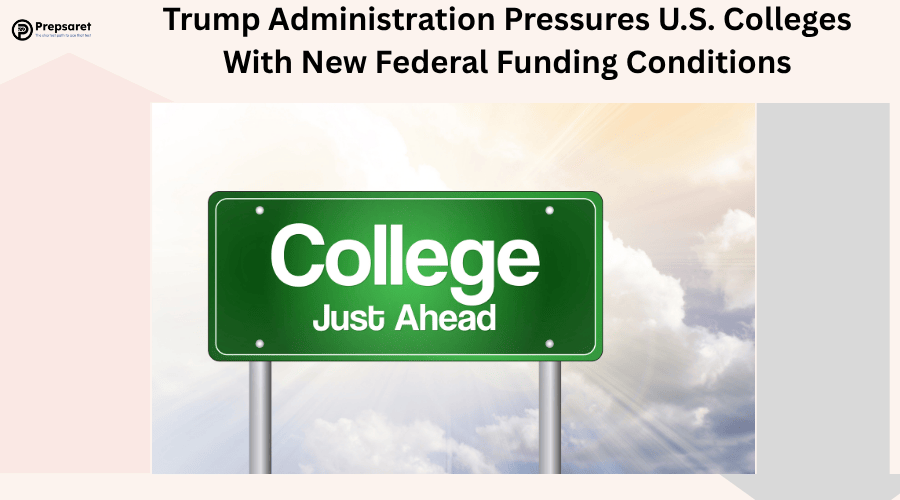Key Points:
- A White House memo outlines a 10-point “compact” requiring universities to cap foreign enrollment, freeze tuition, and align with ideological standards to secure federal funds.
- Critics warn the plan threatens free speech and academic independence, framing it as a political tool.
- The proposal could spark legal challenges as colleges weigh financial incentives against autonomy.
A Sweeping Compact With Strings Attached
The Trump administration has unveiled a controversial 10-point “Compact for Academic Excellence in Higher Education,” offering universities preferential access to federal funds if they agree to new restrictions.
According to a memo obtained by Reuters, the plan demands caps on international undergraduate enrollment at 15%, freezes on tuition for five years, and bans on using race or sex in hiring and admissions decisions.
Additional requirements include mandatory standardized test scores such as the SAT, efforts to curb grade inflation, and public disclosure of post-graduation earnings for every academic program. Colleges would also be obligated to refund tuition for students who withdraw during their first semester.
Supporters within the administration argue that the compact raises academic standards and addresses long-standing concerns about costs, accountability, and ideological bias in higher education.
The initiative is part of President Trump’s broader campaign to reshape universities, which he has previously threatened with funding cuts over issues like pro-Palestinian protests, transgender policies, climate initiatives, and diversity, equity, and inclusion programs.
Also Read:
Free Speech Concerns and Campus Pushback
Rights advocates and academic leaders have sharply criticized the proposal, warning that it could undermine free expression and institutional independence.
They argue that restricting admissions practices and imposing ideological conditions risks turning universities into extensions of the administration’s political agenda.
Civil liberties groups have also flagged the plan’s potential impact on academic freedom, pointing to provisions that could suppress dissenting voices or discourage international students, who contribute significantly to campus diversity and revenue.
Critics say that while universities may benefit from additional federal funding, compliance would expose them to increased government oversight and possible Justice Department investigations if deemed non-compliant.
The Wall Street Journal reported that nine prominent institutions have already received the compact. While some administrators are weighing the financial advantages, many legal experts predict challenges in court, citing constitutional protections for free speech and equal opportunity.
The debate is intensifying across the academic landscape, with faculty, students, and rights groups warning of a dangerous precedent.
As universities consider whether to sign the compact, the proposal has become a flashpoint in the broader struggle over the role of higher education in American society. The outcome may shape not only campus policies but also the future balance between government authority and academic independence.

